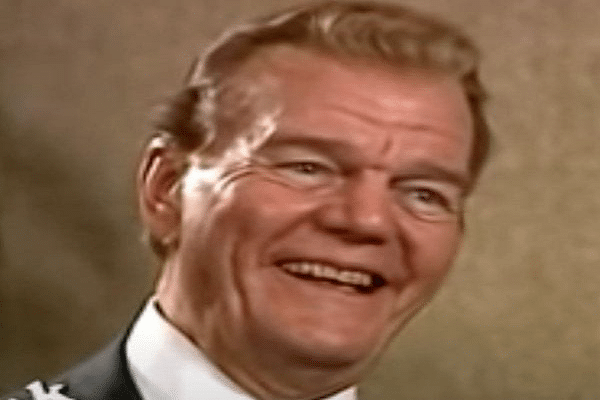In 1965, the renowned radio broadcaster Paul Harvey delivered a forecast that would send shivers down the spines of those who listened. His words, once spoken, became an eerie prophecy that seems to resonate with unsettling accuracy in today’s world.
Paul Harvey, with his distinctive voice and captivating storytelling, had the ability to predict societal shifts and challenges. In 1965, he made a forecast that transcended the boundaries of time, leaving a haunting impression on those who have revisited his words in the present day.
Harvey’s forecast touched upon the rapid advancements in technology and the potential consequences they might bring. Little did he know that his words would serve as a chilling reminder of the unforeseen challenges the world would face in the decades to come.
As we reflect on Harvey’s forecast, it becomes evident that he foresaw a future where technological progress could lead to a loss of personal privacy. He spoke of a time when individuals would willingly surrender their privacy in exchange for convenience, unknowingly paving the way for a surveillance society. Fast forward to the present, and we find ourselves grappling with the implications of ubiquitous surveillance cameras, data breaches, and concerns over digital privacy.
Furthermore, Harvey delved into the potential consequences of an increasingly interconnected world. He warned of the dangers of isolating ourselves within our own technological bubbles, losing touch with the human connections that define our existence. Today, as social media platforms dominate our lives and algorithms dictate our online experiences, Harvey’s words echo with a sense of foreboding.
Harvey’s forecast also touched on the economic landscape, cautioning against the concentration of power in the hands of a few. In a world dominated by mega-corporations and tech giants, his words resonate as a stark reminder of the challenges posed by monopolistic tendencies and the erosion of fair competition.
The broadcaster’s prescient insights into the impact of technological progress on our daily lives serve as a wake-up call. As we grapple with the unintended consequences of our digital age, Harvey’s words challenge us to reconsider the path we are on and to navigate the complexities of a rapidly evolving world with caution.
In conclusion, Paul Harvey’s 1965 forecast stands as a timeless and, at times, terrifying prophecy that continues to reverberate in the present day. His words serve as a cautionary tale, urging us to reflect on the choices we make in the pursuit of progress and the potential ramifications for the future.



























